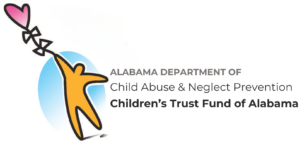Much of the general public have opposing views about marijuana. Some people think marijuana is a dangerous gateway drug that leads the way to “harder” drugs like heroin and meth. Others believe that marijuana is natural, holistic, and virtually safe. In reality, the truth lies somewhere in between. Marijuana has been found to alleviate many legitimate medical conditions, but it can also be dangerous when abused.
According to the CDC, approximately 3 in 10 people who use marijuana have marijuana use disorder. Studies have found that people who use cannabis have about a 10% likelihood of becoming addicted, and the risk of addiction is greater in people who used marijuana during their youth and those who use it very frequently.[1]
A common misconception about marijuana abuse and addiction is that the drug does not cause withdrawal symptoms. While some users may not experience symptoms when they stop using cannabis, many marijuana users experience uncomfortable and distressing symptoms that make it difficult to stop using the drug.
Based on various personal struggles reported by anonymous Reddit users on R/Leaves, an online community dedicated to helping people stop using cannabis, marijuana withdrawal is very real, and it is more serious than many people think. While experiences vary from one person to the next, many people on this forum share their harrowing withdrawal symptoms and related struggles. One thing is for certain, though, marijuana withdrawal can be extremely difficult to endure.
Symptoms of Marijuana Withdrawal
Marijuana withdrawal is most common in people who use marijuana daily or almost daily for at least a few months. Between 47% and 90% of people with marijuana use disorder experience withdrawal symptoms after abrupt cessation of use.[2,3] Common withdrawal symptoms include:
- Anger
- Irritability
- Aggressiveness
- Extreme nervousness or anxiety
- Insomnia
- Disturbing dreams
- Vivid nightmares
- Nausea
- Lack of appetite
- Significant weight loss
- Restlessness
- General malaise
- Depression
- Abdominal pain
- Fever
- Chills
- Sweating
- Body temperature dysregulation
- Headache
- Tremors
- Shakiness
Many of these symptoms are also experienced during withdrawal from opioids, alcohol, and benzodiazepines, drugs that often require medical support to detox from. Still, a lot of marijuana users don’t realize that they are addicted or how bad their withdrawal symptoms can become, so they try to detox by themselves.
How Long Does Marijuana Withdrawal Last?
Even though the high produced from marijuana is short-lived, the drug stays in your system for a long time, so withdrawal symptoms can last for a while. Most people begin having symptoms within the first week of stopping marijuana and symptoms decline after 10-20 days.
The exact marijuana withdrawal timeline varies from one person to the next. A general timeline of symptoms is as follows:
- 1-7 days after discontinuation – Mild symptoms begin 1-7 days after the last time you ingested cannabis. The heavier your marijuana use, the sooner you can expect your symptoms to begin.
- 7-10 days after discontinuation – Symptoms will be at peak severity during this time. Individuals may become so agitated and restless that they are tempted to use marijuana again for symptom relief.
- 10-20 days after discontinuation – Symptoms will steadily begin to decline in severity. The heavier your marijuana use, the longer your symptoms will last.
- After 20 days – Most symptoms subside, but some chronic marijuana users will experience lingering symptoms of depression, mood swings, lack of motivation, and cravings for weeks, months, and, in some cases years.
Is Marijuana Withdrawal Really that Bad?
Marijuana withdrawal is generally not life-threatening, but there is potential for relapse and poor judgment. People who try to detox cold turkey or detox alone often end up using marijuana again, simply to relieve their discomfort. Poor judgment can also occur, making people more prone to accidents, bad decision-making, and other adverse effects.
Some people even develop suicidal ideation as a result of the distress, anxiety, and depression that marijuana withdrawal brings. The risk of relapse and self-harm are dire enough to take marijuana withdrawal very seriously. If you or someone you love is wanting to detox from marijuana, consider doing so under the guidance of a mental or medical health professional.
Tips to Cope with Marijuana Withdrawal
There aren’t currently any medications approved to treat marijuana withdrawal, but there are self-help steps you can take to alleviate your symptoms.
- Drink plenty of water. You do not want to become dehydrated, especially with a reduced appetite. Staying hydrated can reduce headaches, shakiness, and fatigue.
- Eat nutritious foods. Although you may not be hungry, it is important that you nourish your body. Try to eat at least something every day, and make sure it is healthy. A healthy diet will help regulate your sleep schedule and reduce mood swings.
- Take a warm bath. Cold sweats and body temperature dysregulation can be uncomfortable and frustrating, but you can get some relief by taking a warm bath or shower. This will also help relax your body and reduce discomfort.
- Distract yourself. Marijuana cravings can be tempting, but you’re less likely to relapse if you keep your mind busy. Consider doing a puzzle, going for a walk, going out with friends, reading a book, or visiting a local museum. The busier you are, the less evident your withdrawal symptoms will be.
- Lean on your support group. Tell your friends, family, and support group that you plan on quitting marijuana. Reach out to them for support and distraction.
Finally, don’t be scared to ask for professional support. Marijuana withdrawal can be serious, and there is no shame in seeking help from a doctor or addiction treatment center.
References:









